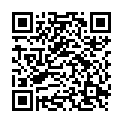|
|
|
| Module code: MAB_19_A_5.02.MTE |
|
|
2V+1U+1P (4 hours per week) |
|
5 |
| Semester: 5 |
| Mandatory course: yes |
Language of instruction:
German |
Assessment:
Written exam 120 min., lab participation (report)
[updated 29.04.2024]
|
MAB_19_A_5.02.MTE (P241-0097, P241-0227) Mechanical and Process Engineering, Bachelor, ASPO 01.10.2019
, semester 5, mandatory course
MAB_24_A_5.02.MTE Mechanical and Process Engineering, Bachelor, SO 01.10.2024
, semester 5, mandatory course
|
60 class hours (= 45 clock hours) over a 15-week period.
The total student study time is 150 hours (equivalent to 5 ECTS credits).
There are therefore 105 hours available for class preparation and follow-up work and exam preparation.
|
Recommended prerequisites (modules):
MAB_19_A_2.07.ELT Electrical Engineering für Mechanical Engineering und Process Engineering
[updated 28.03.2024]
|
Recommended as prerequisite for:
|
Module coordinator:
Prof. Dr.-Ing. Michael Sauer, M.Sc. |
Lecturer:
Prof. Dr.-Ing. Michael Sauer, M.Sc.
[updated 28.03.2024]
|
Learning outcomes:
After successfully completing this module, students will be familiar with the measurement methods for measuring displacement, strain, force, acceleration, speed, torque, pressure, flow, temperature, current, voltage, resistances and will be able to assess their properties. A brief insight into electronics will enable students to handle measuring amplifiers and simple filter circuits safely. Students will be familiar with the possibilities of modern signal analysis technology.
They will be able to apply the measurement techniques they have learned in other disciplines.
Students will have mastered the basic handling and use of simple measuring devices in the laboratory (multimeter, power supply unit, oscilloscope, function generator) and be able to set up simple measuring circuits independently.
[updated 29.04.2024]
|
Module content:
Measurement sequence, measurement sequence components
Measurement errors and deviations
Measuring transducers and operational amplifiers
Wheatstone bridge
Strain gauges
Measuring amplifiers
Measuring lengths, distances and levels
Measuring force, torque, acceleration and pressure
Measuring rotational speed
Flow rate measurement
Measuring temperatures
Measuring electrical quantities
High-pass, low-pass filters
Analog-digital conversion methods
Reasons for and effects of aliasing effects
PC measurement technology
Measurement analysis in time and frequency domain
[updated 29.04.2024]
|
Teaching methods/Media:
Lecture with integrated exercises, lab experiments in small groups
[updated 29.04.2024]
|
Recommended or required reading:
Herbert Bernstein, Messelektronik und Sensoren, Springer Vieweg
Profos/Pfeiffer: Handbuch der industriellen Messtechnik, Oldenburg
Dankert, Jürgen; Dankert, Helga: Technische Mechanik, Springer Vieweg, 2013, 7. Aufl., ISBN 978-3-8348-1809-6
Hoffmann, Karl: Eine Einführung in die Technik des Messens mit Dehnungsmessstreifen, Hottinger Baldwin Messtechnik, (akt. Aufl.)
Schrüfer, Elmar: Elektrische Messtechnik, Hanser, (akt. Aufl.)
[updated 29.04.2024]
|

